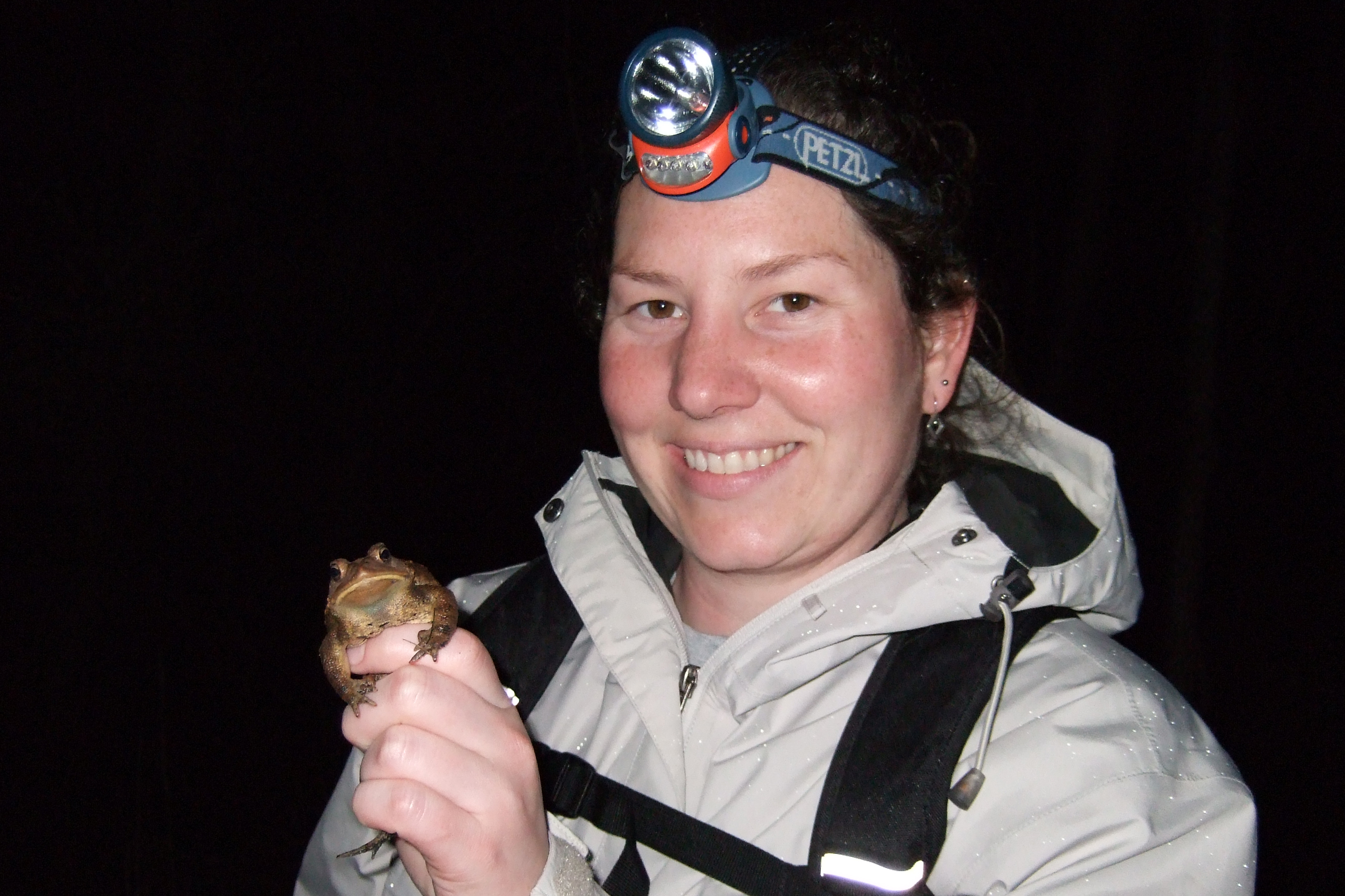College of Natural Resources doctoral student receives Environmental Protection Agency fellowship

Christine Bergeron of Old Orchard Beach, Maine, a doctoral student in Virginia Tech's College of Natural Resources, received a fellowship from the Environmental Protection Agency's (EPA) National Center for Environmental Research for her research on the reproductive success of American toads.
Bergeron’s fellowship, part of the EPA’s Science to Achieve Results (STAR) program, will support her research for the next three years. The highly competitive STAR fellowship encourages students to pursue advanced degrees and environmentally related careers by providing recipients with $111,000 over a three-year period for tuition, stipend, and research expenses. “I have been supported by teaching assistantships in the past, and the EPA STAR fellowship will allow me to concentrate on my research and conduct more studies than I had originally planned,” Bergeron commented.
Bergeron’s research focuses on the effects of mercury on the reproductive success of adult American toads and development of their offspring from eggs through metamorphosis. “Christine’s work is exciting because it combines two of the biggest conservation issues we face today — global mercury pollution and the worldwide decline of amphibians. Her work will provide vital information that will influence public policy and conservation efforts for this critically endangered group of animals,” said Bill Hopkins, fisheries and wildlife sciences associate professor and Bergeron’s adviser.
Of her future plans, Bergeron says, “After completing my Ph.D., I am interested in continuing in academia with an emphasis on teaching and providing research experiences for undergraduates.”
Learn more about Bergeron’s research in the related Virginia Tech Research magazine story: “Mothers’ influence on young wildlife more than genetic”.




